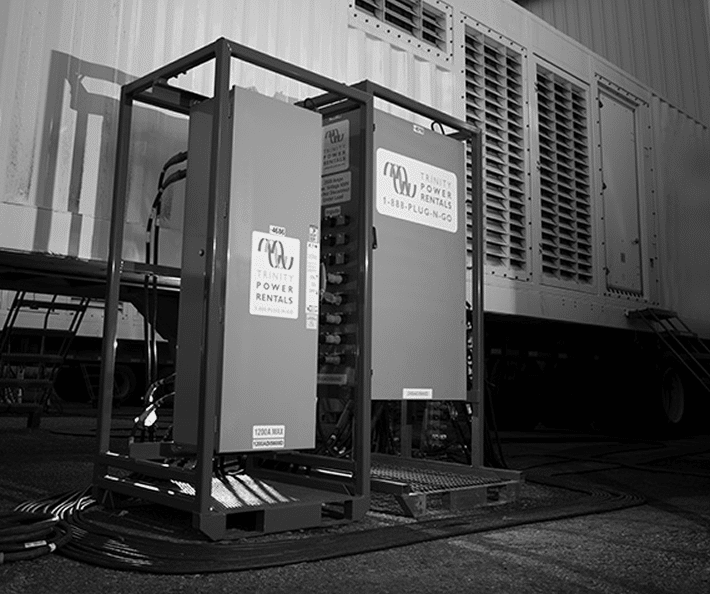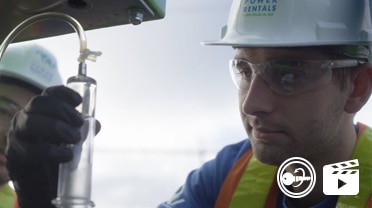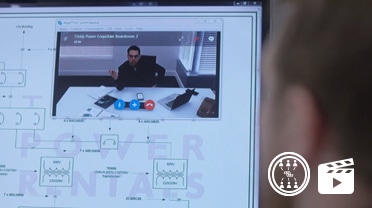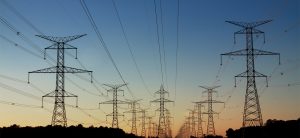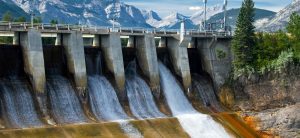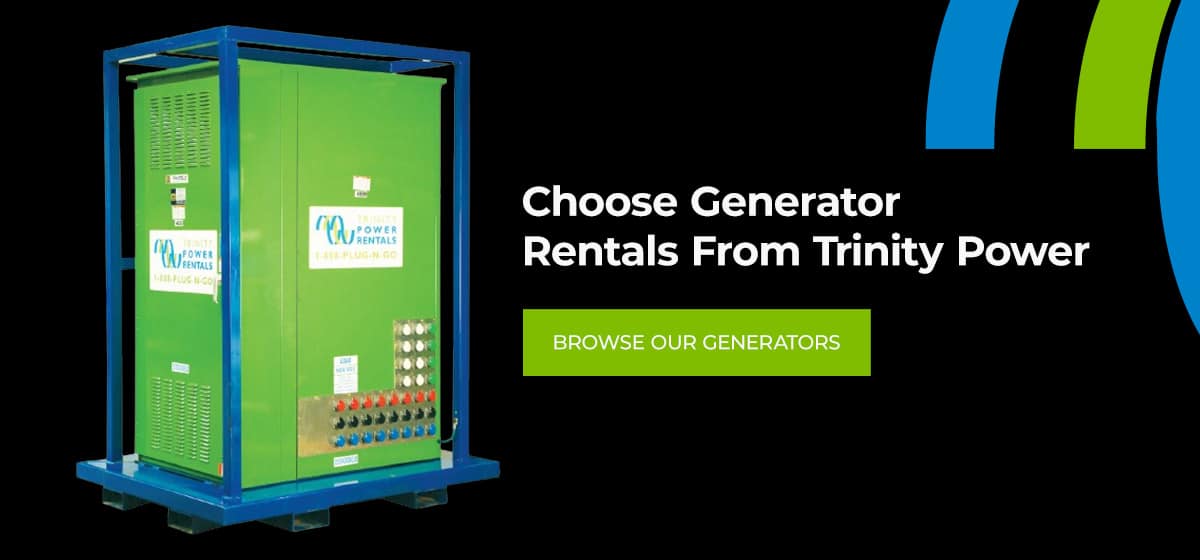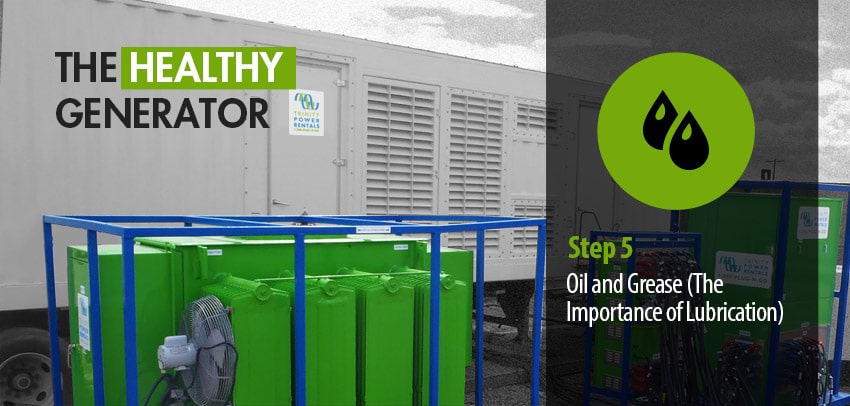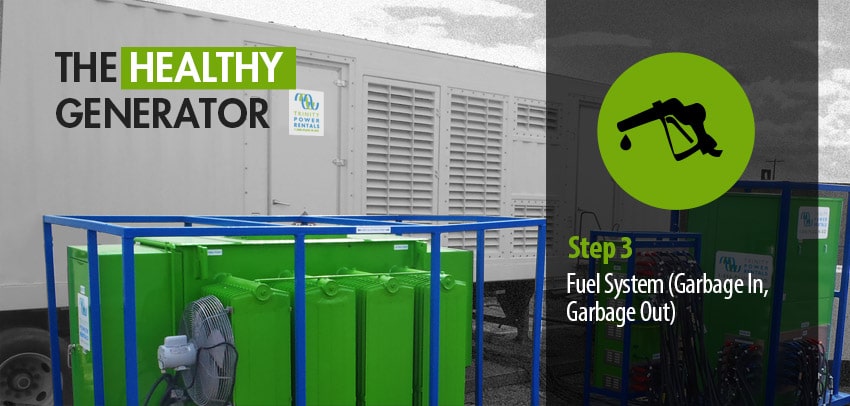- OUR APPROACH
-
COMMITTED TO YOUR SUCCESS
Our approach, developed over decades of experience, is fine-tuned to get the results you want.
We deliver concept-to-completion solutions, designed by temporary power specialists with access to the largest inventory of high-quality power generation and distribution equipment in North America.
-
- Equipment
-
RENTALS
From a wide range of diesel and natural gas generators to transformers, cable, light towers and more, our large rental fleet and extensive vendor network ensure we’ll have the temporary power equipment that your project requires — every time.
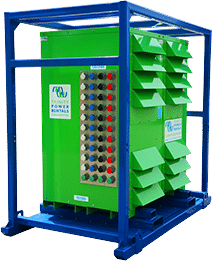
-
- Industries
-
INDUSTRIES WE SERVE
For nearly 20 years, we have been at work powering projects across Canada’s industrial sectors.
Select from this sampling of industries to learn how we can put our expertise to work for you.
VIEW ALL- Projects
- About
-
A PROUD HISTORY. A BRIGHT FUTURE.
From our inception in 1998, we have been building our team on a foundation of excellence. Our team members’ passion, expertise and commitment are what have allowed us to grow into a national company with projects across Canada.
Click on the links to learn more about our history, our team or our career opportunities.
- Blog
- Contact
-
Generators provide the constant and reliable power supply you need to keep project operations running smoothly and on time. Renting a generator can be a convenient and cost-effective option when you need a temporary power supply solution, but the best type of generator for your business will depend on your specific project.
Learn more about the difference between diesel vs. natural gas generators to discover the right generator for your situation.
Advantages of Diesel Generators
Diesel generators have a simple mechanical design that relies on a compression process rather than a spark plug. This design requires less maintenance and offers durable, long-lasting performance.
Other advantages include:
- Operational safety, as diesel is less flammable than natural gas
- Sturdy construction that can withstand heavy use and rugged worksites
- Steady, reliable power supply for any jobsite
Natural Gas Generator Benefits
A natural gas generator uses a spark plug to ignite the natural gas and provide power. This design means that natural gas generators require more maintenance than diesel generators, but they burn cleaner, which may be ideal for businesses that need to comply with specific regulations or meet sustainability goals.
Natural gas generators offer additional benefits such as:
- Fuel cost efficiency
- Minimal odor
- Greater accessibility in urban areas due to the presence of pipelines
Selecting the Right Generator for Your Next Project
Choosing between the two different types of generators will depend on the scope of your project. Consider factors such as site conditions, budget constraints, noise requirements and power output needs to identify the most cost-efficient and productive generator for your jobsite.
1. Location
The location of your project site will play a role in determining whether a diesel or natural gas generator is more suitable. If the site has a natural gas pipeline or tie-in point, then a natural gas generator may be a convenient and straightforward option. These pipelines are more common in urban areas. Diesel generators are generally ideal for remote locations since you will likely already have fuel storage tanks on-site. However, propane tanks may also be an option on these jobsites.
2. Environmental Impact
Both diesel and natural gas generators give off emissions, but as a clean-burning fuel, natural gas produces fewer emissions over time. If environmental impact is a top consideration for your business, choosing a natural gas generator can help reduce your operation’s overall carbon footprint. These generators may help you reach sustainability goals better than diesel generators.
3. Fuel Costs and Availability
When evaluating natural gas vs. diesel generator costs, there are many factors to account for, including:
- Fuel availability: Natural gas is readily available in urban areas where there’s easy access to pipelines, though external factors, such as natural disasters, can disrupt its supply.
- Fuel delivery and storage costs: Diesel has to be stored on-site, which could raise costs. However, it may be more cost-efficient than having natural gas transported to rural jobsite locations.
- The fuel’s energy yield: Natural gas is generally less expensive per unit of energy than diesel, but diesel is more energy-dense, so you will get more out of each diesel unit.
- Project duration: Natural gas generators have high upfront rental costs, so they tend to be better suited for longer projects that offset initial costs with fuel savings. Diesel generators are ideal for both long- and short-term projects.
4. Performance
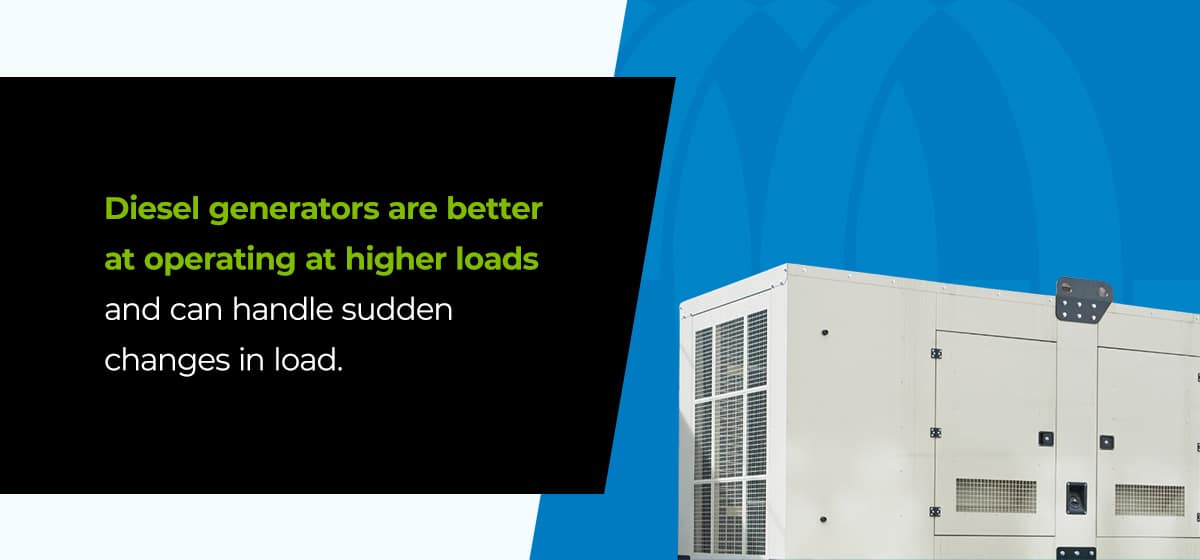
Diesel generators are robust and durable, so you can depend on them for reliable performance in heavy-duty applications and harsh conditions. When considering natural gas vs. diesel generator efficiency, diesel generators are better at operating at higher loads and can handle sudden changes in load. These generators tend to be favored by industries that require a large power capacity, such as construction and mining.
5. Size and Power
Choosing the right generator size is critical to maintaining uninterrupted operations. If the generator is inadequate for your power needs, it could overload and cause outages across your jobsite. Underloading your generator can cause equipment malfunctions that prevent the generator from reaching full capacity when needed. Natural gas generators are particularly susceptible to underloading, so consult with a professional to find the right generator size for your project.
You will also need to consider storage requirements. Natural gas generators do not need storage, while diesel generators do, so the size of your jobsite and your available room for fuel storage may be a significant factor in determining which generator type is best.
6. Noise Levels
Diesel generators can be loud during operation. If your project site has noise restrictions, such as within urban areas, a natural gas generator’s quieter operation may be more suitable. Comparing diesel vs. natural gas generator noise levels will be based on the generator’s size and power.
For example, at Trinity Power, we offer units that run between 72 and 78 decibels. Our towable generators also come with sound-attenuated enclosures to help reduce noise pollution.
7. Maintenance
Diesel generators have a simple design and less flammable fuel, so they generally require less maintenance than natural gas generators, which have complex designs and highly combustible fuel. That said, maintenance is still crucial for generator performance and safety.
Any on-site technicians should be highly knowledgeable and experienced with the type of generator you select. Rental companies may also offer on-site maintenance services throughout the duration of your contract, ensuring you get the qualified and expert repair and maintenance services you need to maximize your generator investment.
8. Portability and Installation
Diesel and natural gas generators come in a range of portable and stationary options to suit your project’s needs. Diesel generators tend to be easier to install than natural gas generators, leading to lower installation costs. Depending on your project’s duration and power requirements, you may be able to offset a natural gas generator’s higher installation costs.
Choose Generator Rentals From Trinity Power
Whether you need a natural gas or diesel generator for an emergency or planned project, you can trust Trinity Power to have the best choice for your needs. We offer an array of commercial generator options to suit your needs, and we’ll work closely with your business to locate the right solution.
Our experts can help you determine the appropriate generator size for your power requirements, as well as the best fuel source for your location, budget and emission requirements. We also offer on-site services like installation and maintenance to help you get the most out of your rental investment.
Browse our commercial generator options, and contact us today to learn more about our natural gas and diesel generators.
Related Articles
Subscribe for Access to Exclusive Content
Get insider updates, industry news, special equipment offers, and expert tips—directly to your inbox.
"*" indicates required fields
